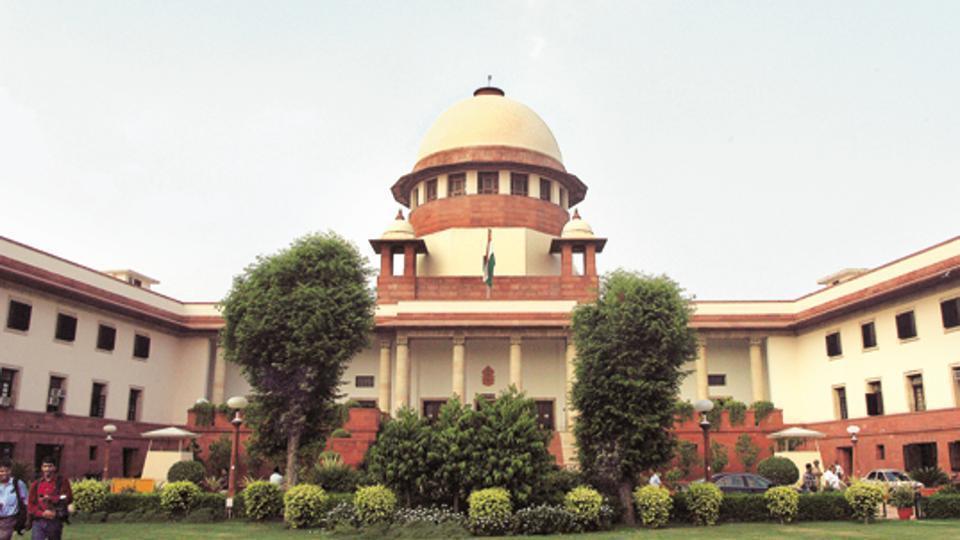The crisis in Indian judiciary
January 23, 2018 | Expert Insights

The Supreme Court has announced that it will be examining the circumstances around the mysterious death of CBI Judge BH Loya.
Judge Loya’s death and the handling of his case, is reportedly one of the reasons why four judges from the Supreme Court openly alleged mismanagement and corruption in the Indian judiciary.
Background
The Supreme Court of India is the highest judicial forum and final court of appeal under the Constitution of India, the highest constitutional court, with the power of constitutional review. Consisting of the Chief Justice of India and 25 sanctioned other judges, it has extensive powers in the form of original, appellate and advisory jurisdictions.
The Chief Justice of India (CJI) is the head of the judiciary of India and the Supreme Court of India. The present CJI is Justice Dipak Misra and is the 45th CJI since January 1950. It has been an unbroken convention for decades now, to appoint the senior-most judge of the supreme court as the CJI.
On January 2018, for the first time in India’s modern history, four Supreme Court judges publicly complained against the functioning of the highest court in the nation. They have also spoken against the current Chief Justice of India and noted that the country’s democracy was at stake. Among the complaints that have been raised was also the distribution of cases among the judges. The four judges who made the allegations are: Justice J. Chelameswar, Justice Ranjan Gogoi, Justice Madan Lokur and Justice Kurien Joseph.
Analysis
In a letter that was made public, the four judges spoke about mismanagement in India’s highest court. “The four of us are convinced that unless this institution is preserved, and it maintains its equanimity, democracy will not survive in this country,” Justice Jasti Chelameswar said while addressing the press in Delhi. "We owe a responsibility to the institution and the nation. Our efforts have failed in convincing CJI to take steps to protect the institution," the judges said adding, “It is with no pleasure that we have been compelled to do this, administration of Supreme Court is not in order.”
One of the issues that the judges spoke about regarded the handling of the case on the death of special CBI Judge B.H. Loya. Medical records show Judge Loya died of a cardiac arrest. Judge Loya's family alleges that days before his death, he was offered Rs. 100 crores as a bribe to rule in favour of the BJP chief. Two weeks after Judge Loya died, the judge who replaced him in the Sohrabuddin case let off Amit Shah and ruled out a trial.
The Supreme Court has announced that it will be examining the circumstances around the mysterious death of CBI Judge BH Loya. According to reports, a three-judge bench headed by Chief Justice of India Dipak Misra heard pleas regarding the conducting of an independent probe into the judge’s death. “As of now, it’s a natural death. Let’s not cast aspersions. Let’s not prejudge,” said Justice D Y Chandrachud, who is also part of the bench.
Senior Advocates Dushyant Dave, representing the petitioners, and Harish Salve, appearing for the Maharashtra government were both caught in a war of words during the hearing. Justice Chandrachud diffused the situation stating, “I think we must equally look at the issue objectively… This is a serious issue. Let’s look at all the documents and hear the case objectively and dispassionately… Ultimately, each of you like us is the keeper of our own conscience. We cannot tell a lawyer to appear and not to appear.”
Meanwhile, CJI Dipak Misra has met with the four dissenting judges twice in the past few days. He promised to address some of the major concerns they had brought forth.
Assessment
Our assessment is that the genesis of the current crisis is partly due to the discretion followed by the Chief Justice in appointing judges to decide on sensitive cases that have serious implications for the society. It appears that the CJI has referred contentious cases to a particular judge of his choice. We also believe that the outcome of the fourth coming cases, including the one regarding Aadhaar, will have a bearing on the constitutional rights guaranteed for every citizen.








Comments